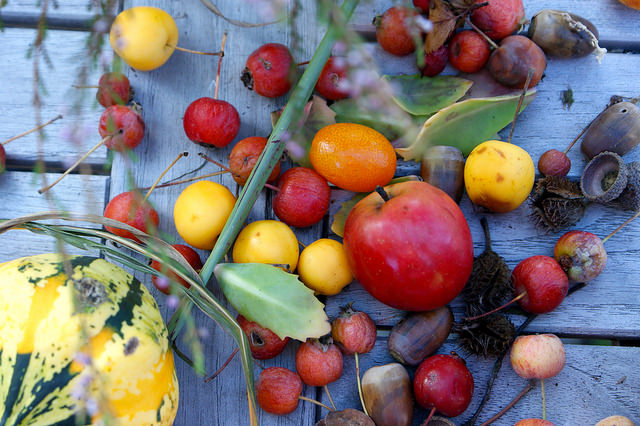I am skeptical
This study came out right when I was researching how fructose (the sugar in fruit) can or cannot wreak havoc on pregnancy and health in general. I wrote about a new study that shows lots of fructose does harm in pregnancy and contributes to infertility. Now I am supposed to write about how fruit makes smart babies.
Obviously it’s possible that they are both true.
But I am still skeptical about this study, in part because it uses a population of women who mostly have high socio-economic status. These women are more likely to have an environment that may contribute to higher cognitive development than their less fortunate peers. They are also more likely to be able to afford the healthy, good fruit that they crave in pregnancy. So if you don’t have the money to buy fresh fruit and your baby tests lower cognitively than a rich woman’s high-fruit baby, it may or may not be because of the fruit.
Also, the study didn’t differentiate between fruit juice and fruit. It would be interesting to know how much of the fruit intake was from juice in each of the cognitive categories.
All of these concerns I have are, admittedly, somewhat mitigated by the fact that they backed up their results with fruit flies. Their study found that pregnant fruit flies (haha-larvae) fed more fruit were smarter (this has got to be very amusing to measure). They are FRUIT flies, though…
I’m sure these scientists know a lot more than I do. Still, makes me wonder about all the sugar.
Plus, the study authors admit that cognitive development at 1 year (when they studied it) has low correlation with cognitive ability later on.
The fruit flies stayed smart. Maybe the fruit children will stay smart, too.
There was another study done by the Western Australian Pregnancy Cohort (RAINE) that showed one year olds who ate more fruit were smarter at 10 years of age (Nyaradi et al., 2013). So there’s that.
You must eat a lot of fruit
You can see in figure 3 that 159 women ate less than 1.5 servings of fruit and their kids tested average cognitively (100). For each serving of fruit pregnant women ate in the second and third trimesters, their one-year-olds’ cognitive score went up (statistically) 2.38 points. You can see on the chart that 22 women ate more than 6.5 servings of fruit and they have a significantly bigger jump in their toddler’s score than any of the other consumption rates.
According to this chart, the real measurable gains in cognitive achievement come from eating five or more servings of fruit. Before that, there’s a little up and down, certainly better than eating less than the USDA recommended two cups per day, but nothing big. Still, the two cups recommended by the USDA is really an integral part of our nutrition, specifically when pregnant. But for strong results, considerably more fruit is required.
Ketchup kind of counts
The main constituent in fruit that showed strongest correlation to cognitive development was lycopene. You’re familiar with this nutrient in tomatoes, and it’s the reason I give myself for allowing my kids eat ketchup on everything. Lycopene is a red carotene with known antioxidant status.
Lycopene is good for all of us. Lycopene deficiency in women is associated with preterm labor and intrauterine growth restriction (Sharma et al., 2003). Preterm infants who died during their first year of life tend to have lower carotenoid levels (less lycopene and other carotenes) than babies born at term (Vishwanathan et al., 2014).
Perhaps, the study authors say, the primary benefit of fruit consumption for cognitive development is in the antioxidant properties of the fruit. Studies have shown that increased antioxidant consumption is associated with better memory and learning ability in adults (Polidori et al., 2009, Peneau et al., 2011, Galli et al., 2002, Hritcu et al., 2014, Joseph et al., 1999). Maybe it works that way on tiny humans as well?
Protecting Preterm Babies
Speaking of tiny humans, the study didn’t include any babies who were born before 34 weeks gestation. The study found, though, that the greatest cognitive benefits from increased fruit consumption were for babies born around 34 weeks. The later the gestation, the less significant the benefits (the dumber the babies-hahahaha). The study authors suggest that if they had included preterm babies born before 34 weeks, they may have found a kind of protective benefit of fruit. Babies born preterm often have lower cognitive development compared to their peers, and perhaps the excess fruit would benefit these tiny babies, if not make them super-geniuses (exaggeration all mine).
Your Fruit Cocktail, Ma’am
According to the study parameters, one serving of fruit is:
3/4 cup fruit juice (100%)
1/2 cup fresh fruit
1/4 cup dried fruit
The current USDA recommendation for active women is 3-4 servings per day.
The smartest babies were born to women who consumed more than 6.5 servings of fruit per day.




